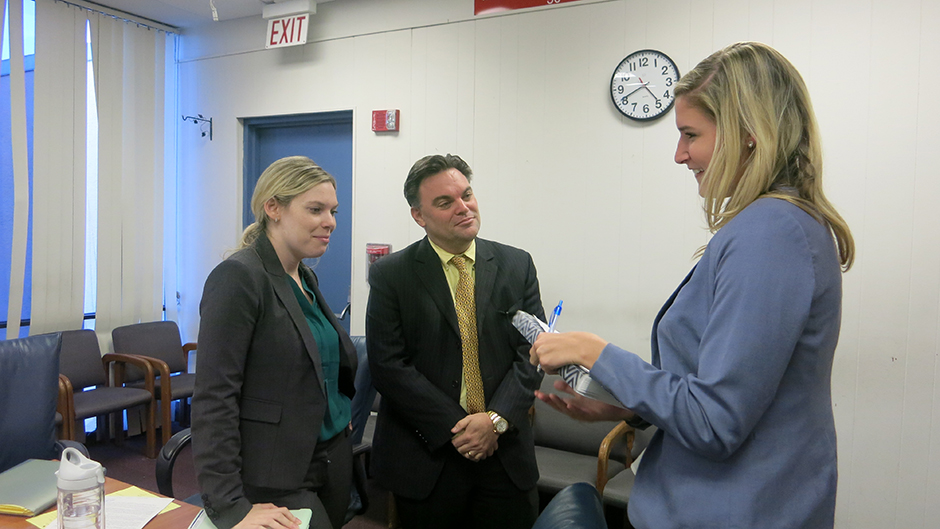Interns in the Children & Youth Law Clinic obtained trial and appellate court rulings that will allow two brothers with disabilities to remain in a stable and nurturing home with their aunt.
In 2012, the Department of Children and Families (DCF) filed a petition alleging that the children needed the care and protection of the state, after the boys' father abruptly moved to North Carolina and the mother was hospitalized for mental health issues. At the time, both children functioned so poorly at home and school that some trial witnesses said the children appeared to be "emotionally disturbed.” In reality, one child was diagnosed with an intellectual disability, while the other exhibited serious behavioral problems.
The children were placed in the care of a maternal aunt and were provided extensive therapeutic, medical and educational services. With her background in social work, the aunt provided the structure and support the children needed. She also facilitated visits between the children and the mother, who received mental health treatment and other services. At the time of the proceedings, the mother was not in a position to resume full-time care of the children, even though she and the children remained bonded to each other.
The Children & Youth Law Clinic, which is celebrating its 20th anniversary this year, represents children in Florida's child welfare system. Unlike other attorneys involved in the civil court process for abused and neglected children, the Clinic serves as the direct voice of the child. Interns Cecilia Gonzalez, JD '15, and Lindsay Watkins, JD'15, who worked on the case in Spring 2014, were primarily responsible for gathering facts about the case and finding out what the boys wanted.
"Being assigned to this case was a challenge at first. I learned quickly that family dynamics were more complicated than could be expressed by the paperwork in our clinic file. However, upon meeting the boys and seeing their interaction with their aunt, it was apparent that they were being supported and loved, while also being taught the importance of education and discipline," said Gonzalez.
The father sought to be reunified with the children. In November 2014, the General Magistrate conducted a 2-day evidentiary hearing to determine whether the children would be endangered by moving to North Carolina with the father. Under the supervision of Clinic Co-Director Kele Stewart, legal interns Kristen Ferrer, JD '15, and third year law student Matthew Deblinger were the trial team. They identified and prepared witnesses, researched legal issues and developed the theory of the case.
"I’m grateful for the opportunity to work on this case and happy the boys get to stay in an environment where they thrive," said Ferrer, who is certified by the Florida Bar and was able to question and cross-examine several witnesses. The students also had the opportunity to collaborate with a team of lawyers, as the DCF and Guardian ad Litem Program were aligned with the Clinic's position.
The case was legally interesting because Florida case law does not provide clear guidance on how to apply the endangerment standard — the deferential legal standard applied when an uncharged parent seeks return of a child. The General Magistrate noted on the record that it was a difficult decision but ultimately issued a report and recommendation in favor of the Father. The Clinic, along with DCF and the GAL, appealed to the trial Judge by filing Exceptions to the Magistrate's decision that were drafted by Clinic interns. The trial Judge overturned the Magistrate's decision, and the father appealed.
Clinic interns and third year law students Danielle Verley and Avina Krishna honed their writing skills on the appeal to the Third DCA. According to the Third DCA, the issue addressed is whether the father "has developed the capacity and preparation to address the extraordinary needs of the children at this time." The Third DCA concluded that the trial court did not depart from the essential requirements of the law by rejecting the General Magistrate's report and recommendations.
“This is an example of the win-win of clinics. The Clinic was able to put in the time and preparation to accomplish a very meaningful victory for the clients. And three semesters of students got invaluable experience with client relational, fact development and trial skills — all with the uncertainties that come in real litigation,” said Stewart.

